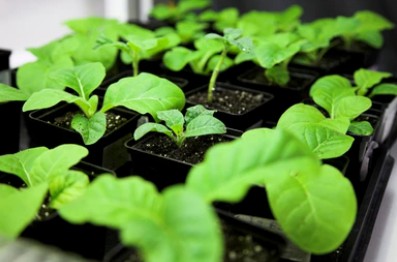
Neoculin, like curculin, was discovered and isolated from the fruit of the Curculigo latifolia (Hypoxidaceae). Neoculin is a heterodimeric isoform of curculin. Neoculin is inherently sweet and is the only sweet protein that exhibits both sweetness and taste-modifying activities. In view of this special property, the study of replacing traditional sugars with neoculin has received significant attention. However, the production of neoculin from Hypoxidaceae is limited by low yield and high cost. Therefore, neoculin transgenic plants have emerged as promising alternatives for their large-scale production.
At Lifeasible, we are focused on developing neoculin transgenic plants to revolutionize the food industry. By utilizing cutting-edge technology and expertise in plant genetic engineering, we can provide customers with a bespoke solution that is cost-effective and sustainable.
Developing neoculin transgenic plants requires a thorough understanding of plant genetics, molecular biology, and protein expression. Neoculin transgenic plant development involves the introduction of neoculin genes into the plant genome to produce neoculin in plant tissues. Genetic analysis, protein expression analysis, and phenotypic analysis are all essential technical tools.
| Service Step | Service Content |
| Genetic engineering | After the target plant species are determined, our team of experienced plant genetic engineering experts will design and construct vectors for neoculin gene expression in plants. We use advanced technologies such as CRISPR/Cas9 to achieve precise genome editing and improve gene insertion efficiency. |
| Neoculin transgenic plant production | After inserting the neoculin gene into the target plant genome, we use tissue culture techniques to generate neoculin transgenic plants. Our optimized protocol ensures high transformation efficiency and stable expression of neoculin genes in plant tissues. |
| Neoculin expression analysis | To ensure the optimal production of neoculin in transgenic plants, we perform protein expression analysis to quantify the amount and quality of neoculin protein in different plant tissues. We use advanced techniques, such as Western blotting and ELISA, to detect and quantify neoculin expression levels in plant tissues. |
| Neoculin functional analysis | Generating neoculin with normal function is the hallmark of the successful development of transgenic plants. Neoculin is therefore tested for its ability to alter the taste of sour foods using a functional assay. We use sensory tests to test the sweetness of neoculin and compare it with natural neoculin. |
Note: Customers can specify plant varieties according to their needs or directly provide T1 generation seeds. Please contact our professional technicians directly for details.
Technical means: CRISPR/Cas9 genome editing and Agrobacterium-mediated transformation
Agrobacterium tumefaciens strains: EHA105, GV2260, GV3101, LBA4404, etc.
Vectors: p35S- MIR-tHSP, pETDUET, E8-MIR-HSP, pBE2113-GUS, etc.
Plant types that can be transformed: tomato (Solanum lycopersicum), apple (Malus domestica), cucumber (Cucumis sativus), lettuce (Lactuca sativa), strawberry (Fragaria × ananassa), carrot (Daucus carota subsp. sativus), rice (Oryza sativa), etc.
Delivery results: at least 10 T0 positive neoculin transgenic plants, experimental data, pictures, standard genetic transformation experiment report.

Lifeasible is committed to excellence in the development of neoculin transgenic plants. Our team of experts has the expertise and experience to provide custom solutions to meet your specific needs. Contact us today to learn more about our services and how we can help you achieve your research goals.
Reference
Lifeasible has established a one-stop service platform for plants. In addition to obtaining customized solutions for plant genetic engineering, customers can also conduct follow-up analysis and research on plants through our analysis platform. The analytical services we provide include but are not limited to the following:
July 13, 2024